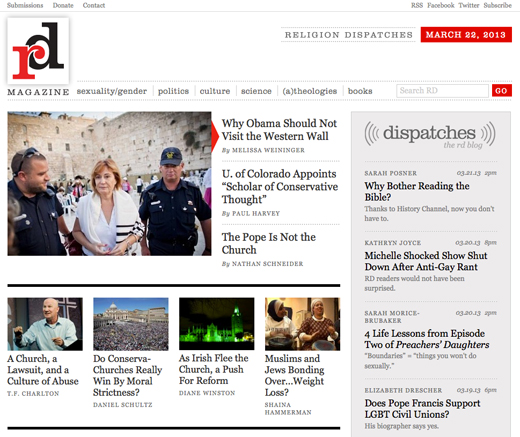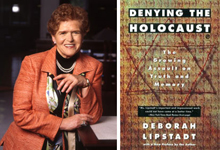If you tune in to CNN on Sunday mornings, chances are you’ve seen Brent Strawn, smooth-pated smooth-talking associate professor of Old Testament at Emory’s Candler School of Theology, engaged with anchors such as Don Lemon on Christian topics ranging from myths about the nativity to the new Pope.
Strawn has made about 15 or so CNN appearances in the last 18 months. He says it’s enjoyable but also stressful and requires preparation—he discusses questions with the producer and does research on topics and specific questions prior to his appearances.
“I’m no Sanjay!” says Strawn, referring to Emory’s and CNN’s own Sanjay Gupta, who serves both as assistant professor of neurosurgery and chief medical correspondent for the network.
Yet Strawn is one of a wide range of religion and ethics faculty at Emory who take their knowledge and expertise on religion to the wider world in their roles as public scholars.
Media, new media meet religious traditions
Several of Emory's religion scholars shared their views recently on specific religious traditions' portrayals in the media at a meeting of the National Association of College and University Chaplains held in Atlanta.
Lyn Pace, chaplain at Oxford College of Emory, program organizer for the conference, said religion and the media is a crucial topic for both scholars and university chaplains, who often find themselves in a position that demands they communicate about religious faiths on campus not only to students, but to parents, alumni and the media.
"What do we mean by media?" Gary Laderman, professor of American religious history and cultures at Emory and moderator of the discussion, posed the question to colleagues. "More and more we see fragmentation of the media and of religion itself," he says.
Laderman has kept pace with the rapid changes in both the way religion is expressed and the way it is reported, as a founder of Religion Dispatches online magazine, and with books such as Sacred Matters, which examines the blurring lines between cultural phenomena (like celebrity worship or even—gasp—the NCAA Final Four) and religious practice.

Laderman's most recent column in Huffington Post is his take on the future of religion, which he sees as undergoing "a great cultural metamorphosis" that is testing the boundaries of religious freedom and giving rise to a "robust and capacious" religious landscape, in which traditional objects, institutions and activities are yielding to "an abundance of spiritual possibilities found in unexpected places."
Other Emory faculty and scholars, each representing expertise in specific religious traditions, are in accord that the way religion is portrayed is constantly evolving, sometimes for the better, sometimes not.
Public scholar, public trial
One problem with media in general, but particularly with regard to religion, is that reporters are "handling a dozen different things at once," according to panelist Deborah Lipstadt, Dorot Professor of Modern Jewish and Holocaust Studies.

That may mean that reporters "don't really understand the nuance of a story, and they don't have time to understand the nuance," says Lipstadt. "Nuance doesn't make a good news story. That's often problematic, especially when you're dealing with religion."
"It's very important to learn how to talk to the media," says Lipstadt, who hastens to add that it's easier said than done.
Lipstadt's own seminal experience with the glare of publicity came after a singular turn at the center of an international libel trial in 2000, following the publication of her book, "Denying the Holocaust," in which she labeled David Irving a Holocaust denier and found herself the defendant in a British court case generating worldwide coverage.
Lipstadt and her legal team won a resounding victory, but ever the analytical historian, Lipstadt says the trial "didn't give me a voice. It gave me a hearing," which after all, she says, was the point.
Stayed tuned for Part II of "Religion scholars go public," which will look at Islam and the media and faith and social media.

